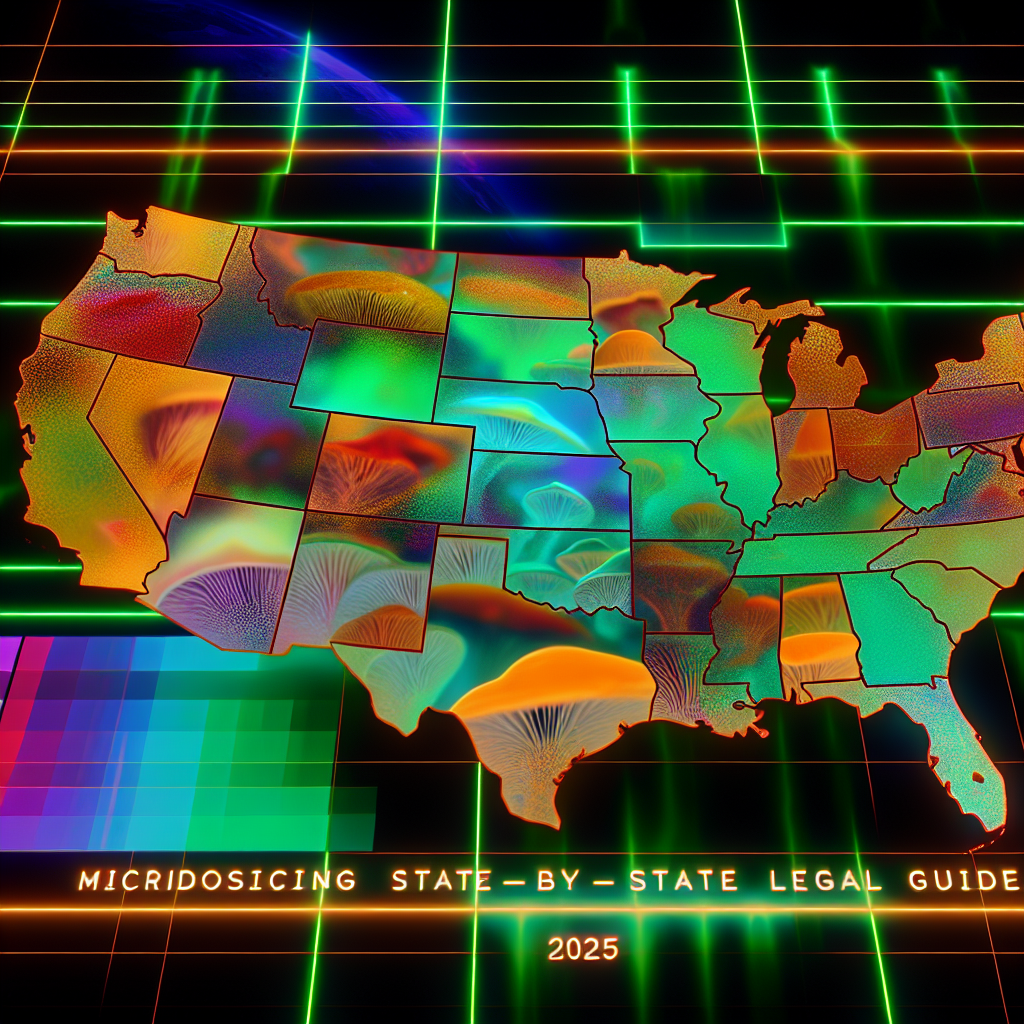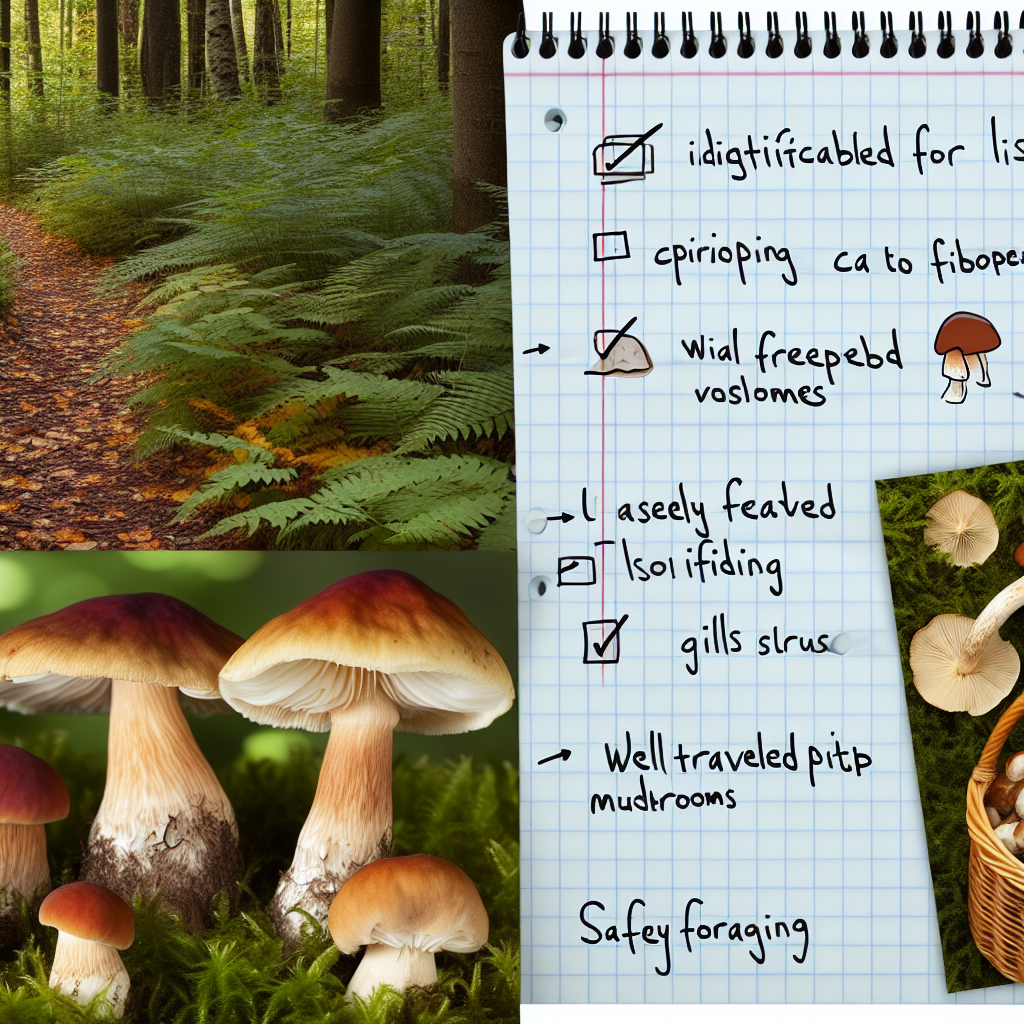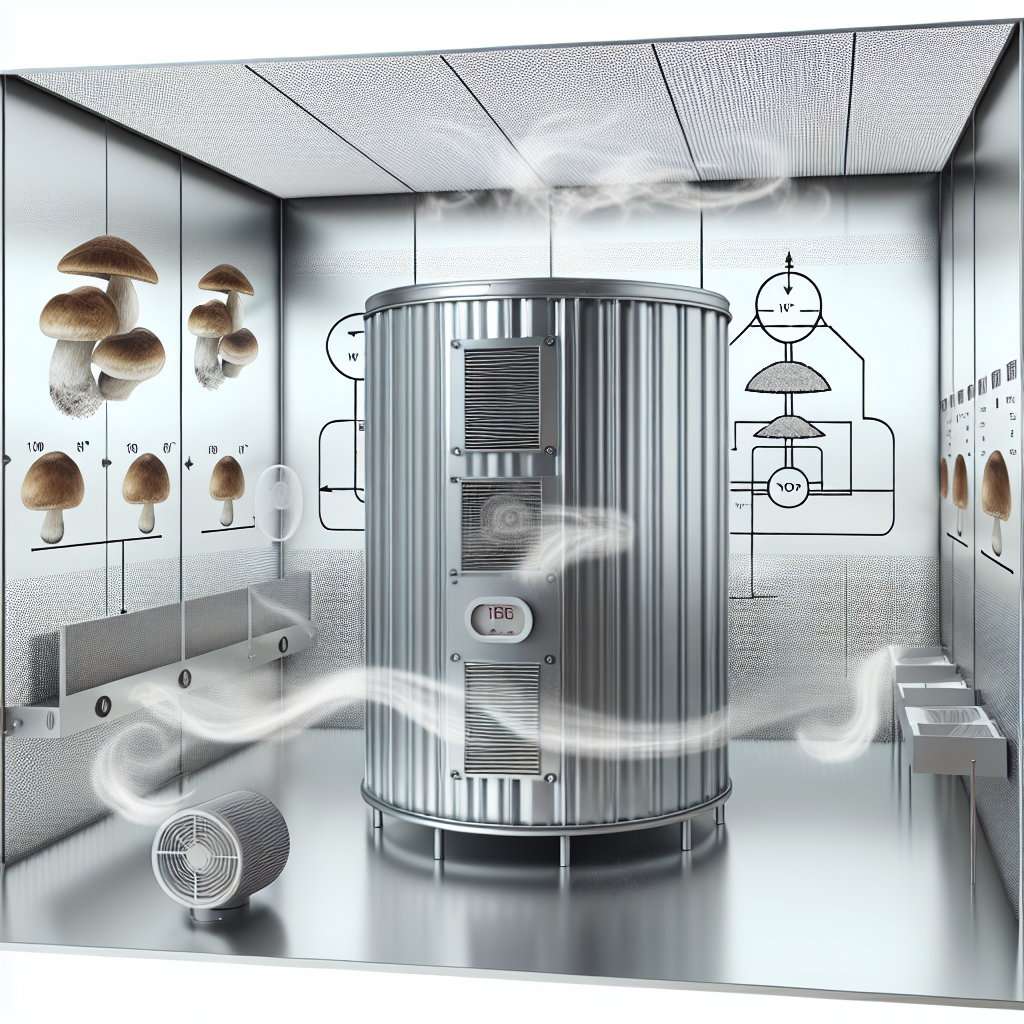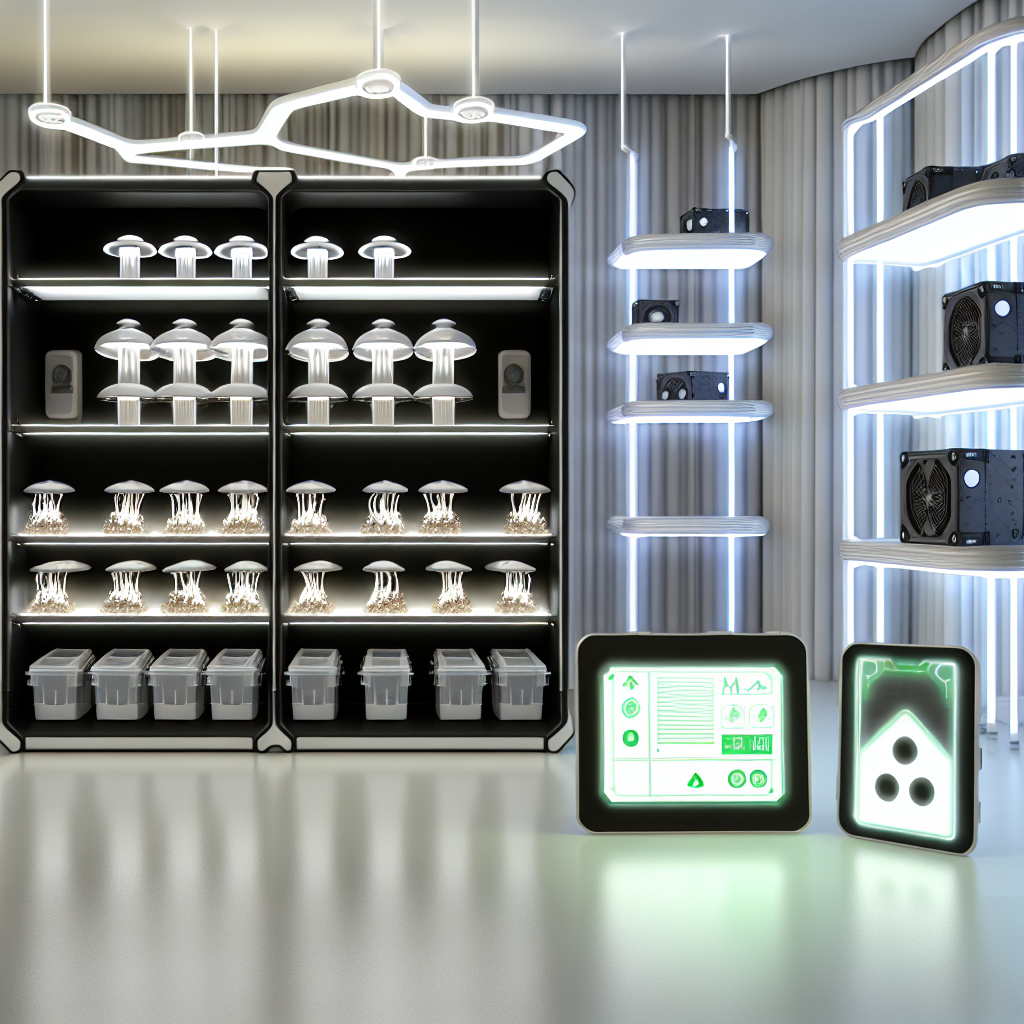Psilocybin Microdosing Protocols: State-by-State Legal Status Guide 2025
Microdosing Psilocybin in 2025: A Natural Wellness Revolution Takes Root
Psilocybin, the naturally occurring psychedelic compound found in select species of mushrooms, has catapulted into the center of public, professional, and medical discourse in recent years. While high-dose psychedelic experiences have been used in therapeutic settings with dramatic outcomes for mental health, microdosing—consuming very small, sub-perceptual amounts of psilocybin—has garnered increasing attention as a promising approach for enhancing mental health, focus, mood, and creativity without hallucinations.
By 2025, interest in microdosing psilocybin has surged to unprecedented levels, particularly among individuals seeking natural alternatives to pharmaceuticals for conditions like depression, anxiety, ADHD, PTSD, and chronic pain. Advocates praise microdosing for its ability to subtly shift one’s mental and emotional state while maintaining daily functionality. Entrepreneurs, professionals, students, and people in recovery have reported subtle yet transformative results from structured microdosing protocols.
However, legality is the most significant barrier to widespread adaptation. While large cities and several states are beginning to change their regulations around therapeutic or even recreational psychedelic use, microdosing still exists in a legal gray area in many parts of the United States. The evolving legal landscape is challenging to navigate, especially for those interested in responsibly engaging in psilocybin microdosing as part of a wellness plan.
This state-by-state legal status guide for 2025 clarifies where microdosing psilocybin may be legal, decriminalized, or still prohibited. Importantly, legality often varies depending on the use case: therapeutic, personal, or clinical research. We will also detail the microdosing protocols that are gaining traction among both medical professionals and wellness communities in regions with regulatory support.
As scientific studies continue to accumulate and governments grow more receptive to evidence-based policy reform, we are witnessing a shift that could redefine how society views mental health treatment. With growing public interest and medical enthusiasm, psilocybin microdosing is not just a trend but potentially a new frontier in holistic mental health care. Understanding its legal framework is the first step for any individual wanting to explore this practice responsibly and safely.
The Science Behind Psilocybin Microdosing: What Research Reveals
The therapeutic potential of psilocybin is now strongly supported by robust academic and clinical research. While full-dose therapy has captured most headlines, clinical trials and cognitive neuroscience studies increasingly study the subtler approach of microdosing.
A landmark study conducted at Imperial College London identified functional brain changes in default mode network activity even at sub-hallucinogenic doses of psilocybin. These changes are similar to those found in patients undergoing successful treatment for depression with SSRIs or psychotherapy, suggesting microdosing may engage similar neurobiological pathways of healing. In the U.S., Johns Hopkins University’s Center for Psychedelic and Consciousness Research has emphasized the need for longitudinal microdosing studies, highlighting early evidence that microdosing can improve mood, reduce anxiety, and enhance focus without triggering adverse psychological effects.
Proven Microdosing Protocols: Fadiman and Stamets Lead the Way
Protocols vary slightly across individuals, but prominent microdosing researchers James Fadiman and Dr. Paul Stamets have outlined two popularly adopted schedules:
– The Fadiman Protocol: A 3-day cycle (dose day, transition day, rest day), repeated over several weeks. It is designed for observing direct contrast between dosing and non-dosing days.
– The Stamets Stack: Combines psilocybin microdoses with lion’s mane mushroom and niacin on a 4-day-on, 3-day-off schedule. Studies suggest this combination may enhance neurogenesis and cognitive function further than psilocybin alone.
A 2021 study published in Nature Scientific Reports analyzed self-reported data from over 8,500 microdosers globally and found consistent improvements in mood, productivity, and emotional regulation. Brain imaging studies have also demonstrated that even small doses can increase neuronal connectivity and synaptic plasticity—factors crucial for emotional resilience.
In states where therapeutic psilocybin is allowed, licensed mental health professionals are now working to incorporate microdosing into alternative treatment plans for patients unsuited for full-dose psychedelic therapy. Early adopters in Oregon’s state-licensed psychedelic therapy program, for example, are actively developing protocols that guide patients through personalized microdosing regimens supervised by coaches or facilitators.
Microdosing Legality Across the U.S.: 2025 State-by-State Overview
Understanding where microdosing is legal, decriminalized, or criminalized is essential. Here’s how the landscape looks in 2025:
– Oregon: Legal for therapeutic use under Oregon Psilocybin Services. Microdosing within therapeutic frameworks—including medical coaching—is legally supported.
– Colorado: Legalized under Proposition 122. Natural psychedelic plants and fungi decriminalized statewide. Personal use and sharing permitted, including microdosing.
– California (selected cities): Cities like Oakland, San Francisco, and Santa Cruz have decriminalized psilocybin. Advocacy for statewide legislation is active. Microdosing is generally tolerated in decriminalized cities.
– Washington D.C.: Decriminalized under Initiative 81. Private, personal use including microdosing is among the lowest law enforcement priorities.
– Massachusetts (select regions): Cambridge, Somerville, and Northampton have decriminalized psilocybin. Local residents may responsibly microdose without risk of legal consequences.
– Michigan (Ann Arbor, Detroit): Decriminalized in cities; state movement is growing. Microdosing is effectively decriminalized at the local level.
– Washington State: Legislative efforts to establish regulated psilocybin access are developing. As of 2025, microdosing remains legally ambiguous outside Seattle (decriminalized since 2021).
– New York: No statewide decriminalization or therapeutic framework yet, but decriminalization bills are under review. Illegal but under soft scrutiny in some communities.
– Texas, Florida, Tennessee: Still considered Schedule I controlled substance states as of 2025. Possession and use—including microdosing—remain illegal and subject to criminal penalties.
– Alaska, Hawaii, Vermont: Emerging policy discussions may lead to therapeutic pilot programs. Caution advised until formal legislation passes.
The Road Ahead: Microdosing as a Mental Health Frontier
As microdosing psilocybin quietly transitions from fringe wellness trend to medically supported intervention, understanding the legal intricacies across the U.S. has never been more important. While therapeutic and personal psilocybin use is gradually being embraced, the path forward requires careful attention to evolving state and local laws. For many, responsible microdosing may represent a powerful tool for cognitive resilience and emotional well-being—provided it’s approached legally, ethically, and with the guidance of current science.
Stay informed, stay responsible, and consider working with qualified professionals wherever possible.
References
1. Johns Hopkins Psychedelic Research Center
2. Imperial College London Psychedelic Research Centre
3. Nature Scientific Reports: Microdosing Study, 2021
4. Oregon Health Authority: Psilocybin Services
5. Colorado Natural Medicine Initiative
6. Paul Stamets’ Microdosing Protocol
7. Decriminalize Nature National Map
8. MAPS Psychedelic Science 2023
Concise Summary:
In 2025, psilocybin microdosing is emerging as a promising approach for enhancing mental health, focus, and creativity without hallucinations. However, legality remains a significant barrier, with varying state-by-state regulations. This guide explores the science behind microdosing, popular protocols, and the evolving legal landscape across the U.S., highlighting therapeutic, personal, and clinical research considerations. As mental health treatment evolves, understanding the legal framework is crucial for those interested in responsibly exploring psilocybin microdosing.

Dominic E. is a passionate filmmaker navigating the exciting intersection of art and science. By day, he delves into the complexities of the human body as a full-time medical writer, meticulously translating intricate medical concepts into accessible and engaging narratives. By night, he explores the boundless realm of cinematic storytelling, crafting narratives that evoke emotion and challenge perspectives. Film Student and Full-time Medical Writer for ContentVendor.com




